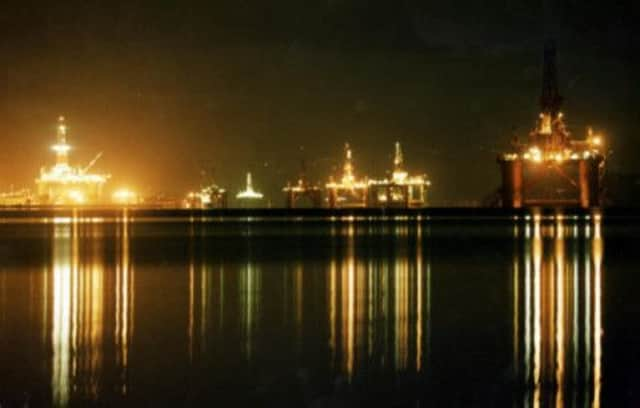Oil revenue ‘will fall short by £1.7 billion’


Revised figures, taking into account falling output and oil prices, suggest that North Sea receipts will amount to £5bn this financial year compared with the £6.7bn originally predicted in the Chancellor’s 2013 Budget.
Further analysis of new North Sea oil projections, produced by the independent Office for Budget Responsibility (OBR) for George Osborne’s Autumn Statement this week, also raises questions about the financing of an independent Scotland.
Advertisement
Hide AdAdvertisement
Hide AdA paper by Glasgow University’s Centre for Public Policy for Regions (CPPR) claims that oil revenue in an independent Scotland would fail to plug the multi-billion-pound gap created by removal of the Barnett Formula, the funding mechanism which determines how much cash Scotland receives as part of the UK.
One of the paper’s authors, John McLaren, honorary professor of public policy, said: “As expected, the OBR has significantly revised down their North Sea oil revenue forecasts.
“This makes Scotland’s post-independence fiscal position more worrying as the projected difference between the benefit of remaining with the Barnett Formula and independence fails to be met by the compensating, but declining, North Sea revenues.”
According to the OBR, oil production in 2013-14 is projected to be lower than was expected when the Chancellor announced his Budget in March. The CPPR paper claimed there had been another substantial fall in oil output, by 12 per cent on 2012-13.
The paper also noted that oil and gas prices have been lower in 2013-14 ($108 per barrel) than the $113 per barrel forecast in March.
On the economics of independence, the CPPR report said: “In effect, Scotland would be giving up the net transfer from the rest of the UK implicit in the existing Barnett arrangement, of around £7bn a year in cash terms, whilst retaining its geographic share of North Sea revenues, now estimated by OBR to be between £3.3bn to £4bn by 2015-16 and projected to fall further.
“Hence, the OBR’s latest forecasts indicate that Scotland could be facing a net fiscal loss from independence.”
Scottish Conservative energy spokesman Murdo Fraser said: “This is more evidence that the SNP has failed to do its sums on separation. There was no mention in the white paper of a £3bn black hole, but that’s exactly what is being exposed here.
Advertisement
Hide AdAdvertisement
Hide Ad“The report once again highlights how Scotland can benefit from North Sea oil while being protected from its volatility within the wider UK.”
A Scottish Government spokeswoman said: “Scotland can more than afford to become an independent country. Oil is a bonus for Scotland, not the basis for our economy. Even without the resources of our North Sea, Scotland’s economy is on a par with the rest of the UK and when you add North Sea oil and gas it is 20 per cent higher.
“This analysis is based on the Office for Budget Responsibility forecast assumptions, which are not consistent with the latest industry expectations for production or current price trends.
“The costs of remaining part of the UK are even greater with the Autumn Statement confirming that Westminster parties (are) targeting a replacement of Barnett with a needs-based measure which could result in the Scottish budget being cut by £4bn a year.”